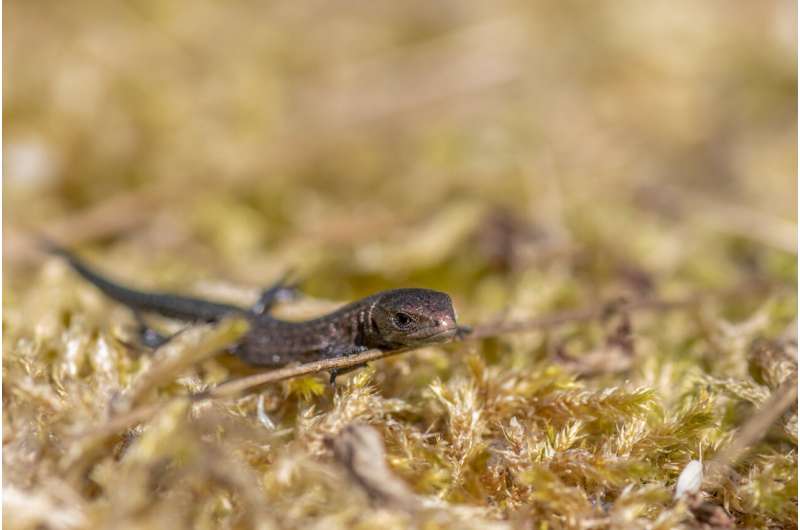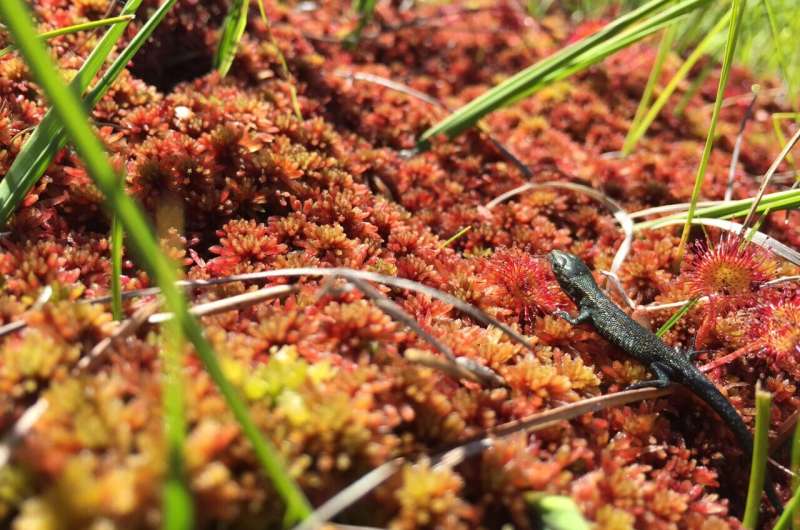August 10, 2022 report
Lizards in increasingly warming climates found to have shorter telomeres

An international team of researchers has found that some lizards living in increasingly warm environments have shorter telomeres, leading to shorter lifespans. In their paper published in Proceedings of the National Academy of Sciences, the group describes their 10-year study of lizards living in a mountainous part of France and what they saw when measuring telomere length.
Telomeres are strands of DNA situated on the ends of chromosomes that serve as a sort of cap, helping to protect the DNA inside. Prior research has shown that telomere length can be used as a measure of overall health and aging status. As a person gets older, their telomeres degrade, which plays a role in the aging process and eventual death. Also, shortening telomeres in an individual (or group) can suggest a person (or animal) is having health issues and could therefore have a shorter lifespan. In this new effort, the researchers spent a decade studying 10 groups of common (viviparous) lizards living in parts of the Massif Central mountains in France. They measured telomere length in random lizards of all ages.
As part of their study, the researchers found that population levels for all the groups they studied were dropping—and the warmer the temperatures grew, the bigger the decline. The group living in the part of the mountains that had warmed the most, disappeared altogether.

Suspecting the population declines were related to the increase in temperatures, the researchers compared the condition of the telomeres between lizard groups. They found that those living in places that had warmed the most had shorter and more degraded telomeres. The also found indications of lizards passing on telomere traits to their young—lizards were being born with shorter telomeres and thus had shorter lifespans. Because of that, many died before they grew old enough to reproduce, further reducing population size.
The researchers conclude that climate change is making the lizards age prematurely and they are thus at risk of extinction. They also suggest that testing telomere length and condition in other species in other places could serve as a means for testing their survivability as the planet warms.
More information: Andréaz Dupoué et al, Lizards from warm and declining populations are born with extremely short telomeres, Proceedings of the National Academy of Sciences (2022). DOI: 10.1073/pnas.2201371119
Journal information: Proceedings of the National Academy of Sciences
© 2022 Science X Network

















